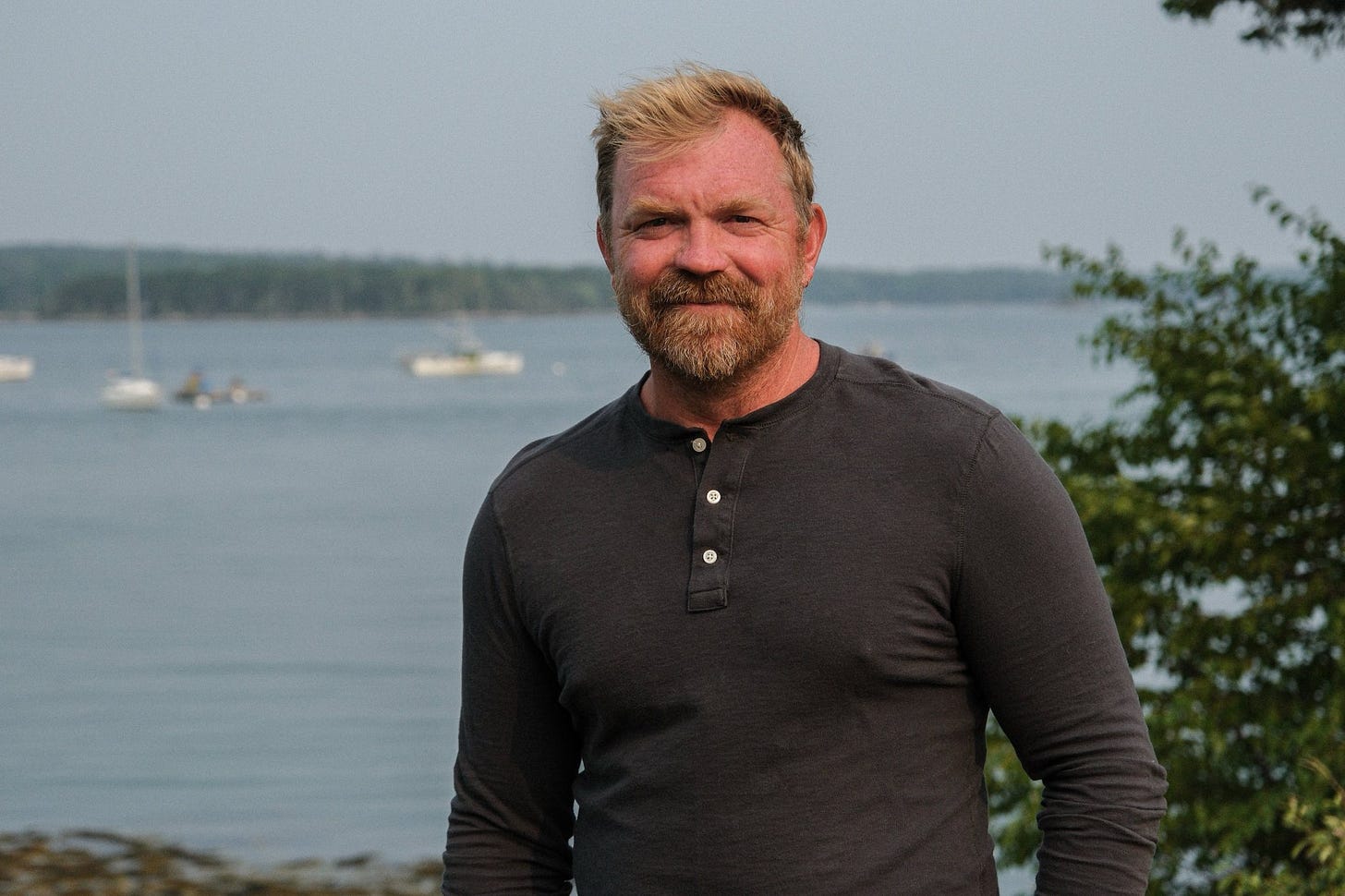Meet the Disillusioned Veteran Who Thinks He Can Beat Susan Collins in Maine
Oysterman Graham Platner is challenging the establishment, demanding corporations pay for climate change, and says the genocide in Gaza is the “ultimate moral test of our time.”
In 2020, the Democrats were sure they could finally best Susan Collins (notorious for being only “concerned” about Trump’s unconstitutional, illegal, and racist behavior). Optimism was high, particularly after she voted to confirm Brett Kavanaugh to the Supreme Court. Plus, Democrats, who had former Speaker of the state House Sara Gideon leading the charge, eclipsed Collins’ $26.5 million in fundraising with a whopping $68.6 million by Gideon’s campaign.
But then Collins beat Gideon by nearly nine points. In a state that Joe Biden won by nine. An 18-point margin.
Such is the disaster that Graham Platner, a 40-year-old oysterman and US veteran, thinks he can prevent next year.
“There is a very tired playbook that the Democrats have run for a while where DC chooses establishment candidates that they base upon their fundraising capacity, and in 2020…they just got battered, and Susan Collins held the seat,” Platner, who is running for the Senate Democratic nomination to take on the Republican incumbent, tells me. “So in my opinion, we need to be doing something else. I mean, clearly that is a failed strategy.”
Platner, who announced his campaign early Tuesday, joins a relatively open field of candidates vying to take on the lone blue-state Republican senator. There are now six declared candidates for the primary set to take place in less than a year. But many higher-profile Democrats have opted not to enter the race, which will be pivotal in determining Senate control in 2026.
Some of the hesitation has come from the fact that Maine Governor Janet Mills is term-limited, so her soon-to-be-vacant seat has drawn several high-profile names, including the former Senate president, the former House speaker, and the current secretary of state. Mills herself is a leading possible contender to jump into the Senate race, giving others pause from entering, too.
But much of the balking has come simply from Collins’ trouncing in 2020, leaving room for political outsiders like Platner to lead a different kind of campaign.
‘What Is the Point of Living a Good Life?’
Born and raised in Maine, Platner joined the Marines out of high school “mostly out of like a young man's sense of duty and also a bit of a call to adventure.” He deployed to Iraq, serving for four years. Upon returning, he went to Washington, DC, to attend George Washington University. But he had a lot of friends still deployed, and he felt he was not pulling his weight. So he re-enlisted in the army, deploying to Afghanistan in 2010 and 2011.
Returning in 2011, after his fourth tour, he found himself disillusioned with the military. Platner says there was the baseline stress that one might have going through traumatic experiences like war, and then there was a realization on top of that “that I did not believe in the thing that I had taken part in.” There was also the trauma in seeing his friends die or get horribly injured, and all the civilians living in the countries they deployed to have their lives upended and destroyed. It was “all in the service of something that I could not find any value in. And that left me feeling very, very unmoored,” he says.
After his return to DC, he was in and out of college. He picked up bartending, and never ended up finishing school. In 2016, he moved back to Maine, where he began gaining support from the Veterans Affairs department, getting physical and mental therapy. He felt a renewed call to service, and in 2018, got a job as a security contractor for the State Department in Afghanistan.
“It was then where whatever cynicism and disillusionment I had once had was just thrown into overdrive,” Platner says, explaining he saw the same things he had seen years prior: failed strategies, tactics, policy, and “what can only be called fraud, the theft of American taxpayer dollars, just being shoved into the pockets of private companies.” He tells me that what he witnessed really underscored his larger critique that the system in the US serves to extract wealth from working-class people, all to give to a small handful. So, that same year, he quit, went back to Maine, and began getting involved in aquaculture. “I hung up the guns, and I never looked back.”



